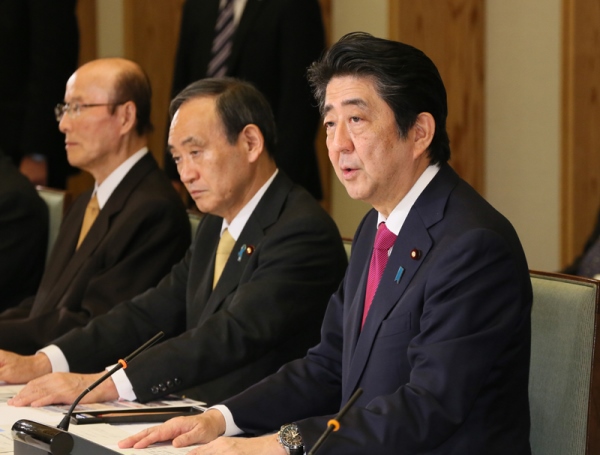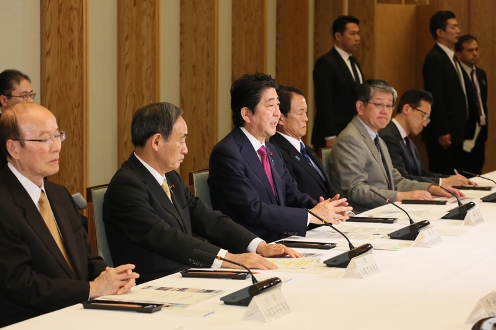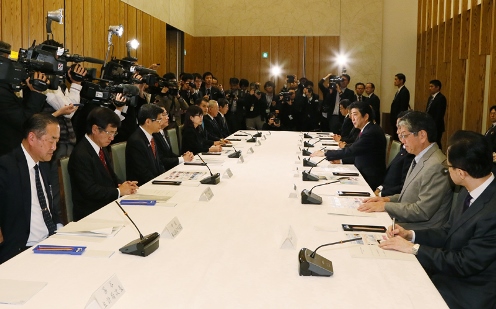Home > News > The Prime Minister in Action > December 2016 > Ministerial Council on the Strengthening of the Maritime Security System
The Prime Minister in Action
Ministerial Council on the Strengthening of the Maritime Security System
December 21, 2016
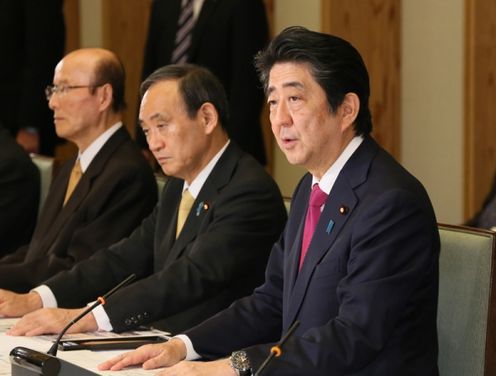
Photograph of the Prime Minister making a statement (1)
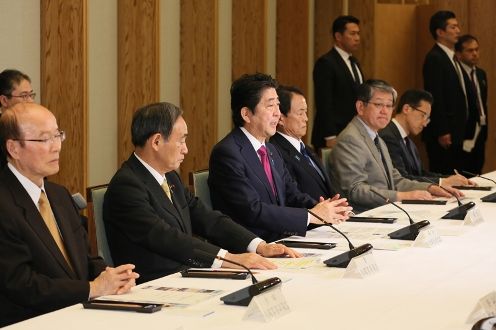
Photograph of the Prime Minister making a statement (2)
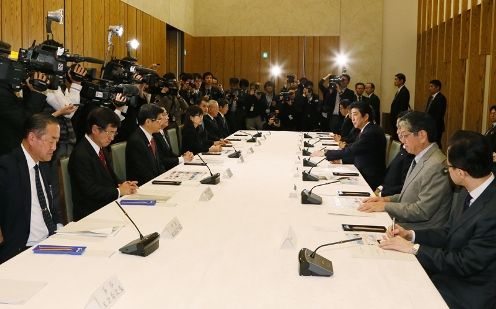
Photograph of the Prime Minister making a statement (3)
[Provisional Translation]
Prime Minister Shinzo Abe held a meeting of the Ministerial Council on the Strengthening of the Maritime Security System, at the Prime Minister’s Office.
Based on the discussion, the Prime Minister said,
“The elite members of the Japan Coast Guard work day and night to carry out their duties in the freezing cold seas of the north, the boiling hot seas of the south, and in the complete dark of nighttime seas, with an unwavering sense of mission, in order to protect the seas of Japan, one of the world’s leading maritime nations.
In May 1948, on the day of the establishment of the Japan Coast Guard and at a time when Japan was still occupied, Mr. Takeo Okubo, the first Commandant of the Japan Coast Guard, said to his fellow Japan Coast Guard members, “The spirit of the Japan Coast Guard lies in justice and benevolence.” Since then, this spirit of justice and benevolence has been carried on by each member of the Japan Coast Guard.
Commandant Okubo also chose the plum blossom as the symbol of the Japan Coast Guard. Plum trees bloom even in cold winds, earlier than other flowers, releasing a lovely fragrance, and its fruits are an integral part of the lives of the people. Mr. Okubo chose it because he saw it as the flower that best symbolized the Japan Coast Guard.
The work of Japan Coast Guard members is tough and they have to put their lives at risk. The Special Rescue Team members dive to depths of up to 60 meters to rescue people. Also, Japan Coast Guard members tackle maritime crimes such as suspicious vessels, poaching, and smuggling. That is not all. The Japan Coast Guard members are also responsible for protecting important seaside facilities throughout Japan, such as nuclear power stations, from the threat of maritime terrorism.
Furthermore, in addition to these duties, in recent years the intensity of security patrols in territorial waters has been rising. From the autumn of 2012, Chinese Government vessels have been entering Japan’s contiguous zone surrounding the Senkaku Islands almost every day, and several times a month they are certain to intrude into Japan’s territorial waters around the Senkaku Islands. During the past three years, China has tripled the number of large-scale Government vessels of the 1,000-ton class or above, and now has a fleet of 120 such vessels.
The Japan Coast Guard is the police and fire department of the sea, and its patrol vessels are the sea’s police cars, ambulances, and fire engines. In order to protect Japan’s peaceful and bountiful seas, and the lives and assets of the people, and to ensure security and peace of mind, there is no room for even the slightest flaw in the system.
In 2013, when a Cabinet decision was made regarding Japan’s national security strategy, I issued instructions for strengthening the capability of legal enforcement organs to protect Japan’s territories and that of maritime observation. In accordance with that strategy, and believing that the structure and capability of the Japan Coast Guard should be broadly strengthened, today we have decided the Policy on Strengthening the Maritime Security System at this Ministerial Council meeting.
In regard to the Japan Coast Guard, for FY2017, as well as significantly increasing the initial budget to more than 210 billion yen, we will increase staff by more than 200 people, including more emergency personnel. As a result, and in conjunction with the supplementary budget for this fiscal year, we will urgently begin strengthening the Japan Coast Guard’s structure, including supplying five additional large-scale patrol vessels, strengthening maritime surveillance such as by fully equipping vessels dedicated to patrolling the Senkaku Islands with image transmission equipment, and increasing the number of maritime survey vessels by three and improving their functions.
In accordance with this policy, we will continue to strengthen the maritime security system, and thoroughly protect the peaceful and bountiful seas of Japan.”

